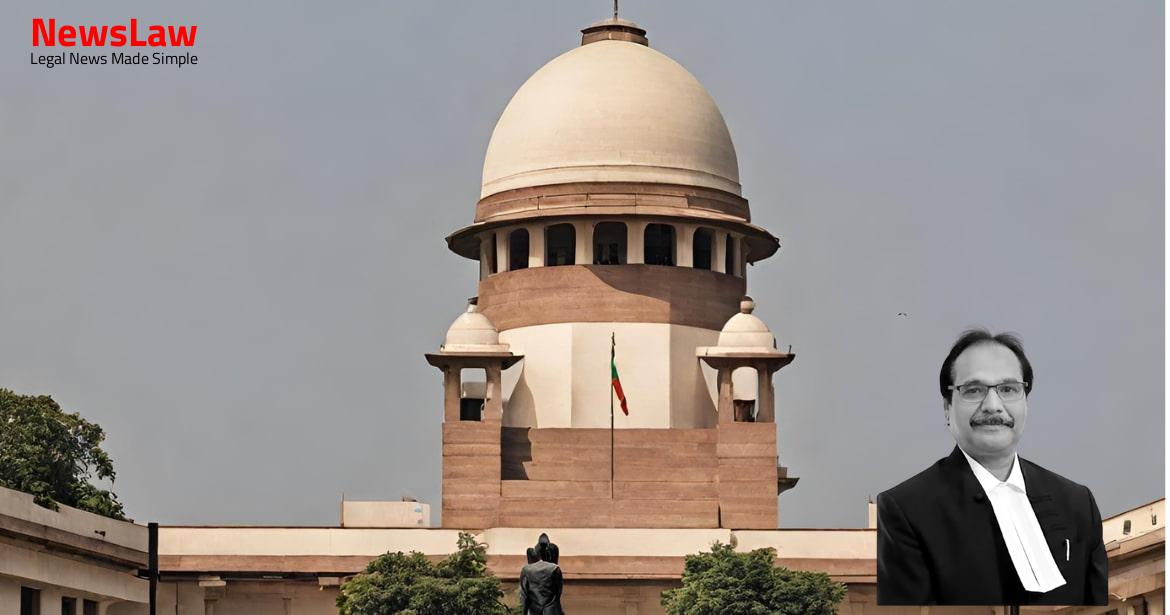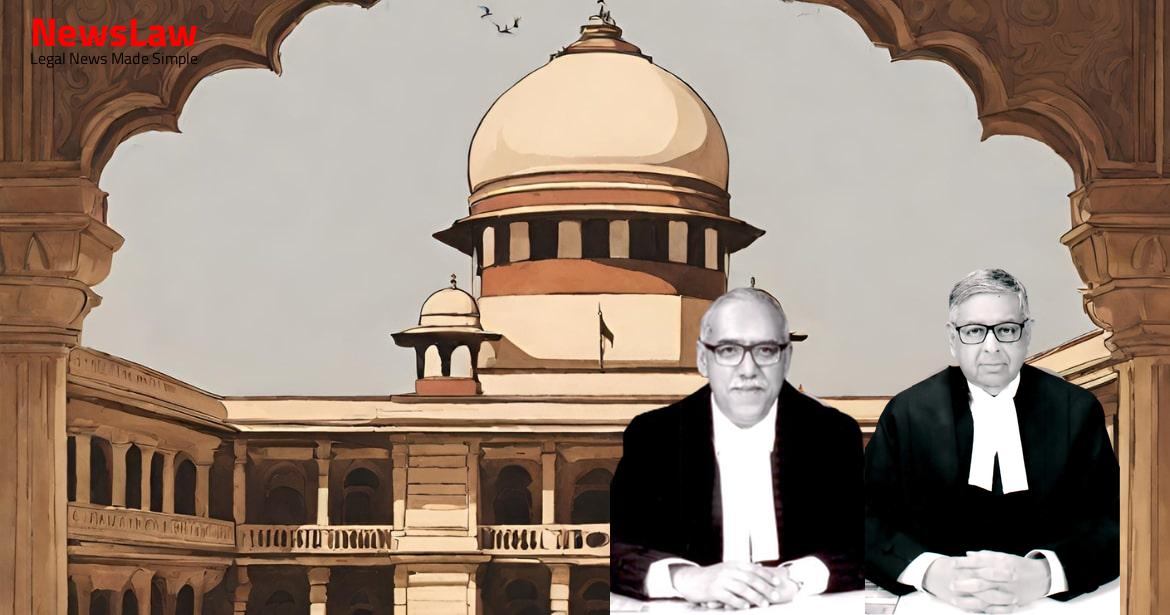The recent coal mining case sheds light on the intricate legal analysis conducted by the court regarding judicial review and contract rights. The case delves into the principles governing administrative decisions, the scope of judicial review, and the implications for contractual obligations. Understanding the court’s interpretation is crucial in grasping the impact on decision-making processes in the realm of coal mining contracts.
Facts
- CWP No. 26180 of 2015 was dismissed as withdrawn by the High Court based on PSPCL’s statement to consider EMTA’s representation before finalizing the fresh tender process for Coal Mines at Pachhwara
- EMTA’s representation on 20 February 2018 was rejected by PSPCL on 6 April 2018, leading to EMTA filing CWP No. 10055 of 2018 challenging this decision
- PSPCL passed a Resolution on 30 June 2017 to drop the Global Tender, and on 30 April 2018 issued a fresh Request For Proposal for Mine Developer-cum-Operator selection which was challenged by EMTA in CWP No. 16245 of 2018
- DBL-VPR Consortium submitted the lowest bid for Mine Developer-cum-Operator and was awarded the contract with a Coal Mining Agreement signed on 11 September 2018
- On 16 February 1999, PSEB issued a tender for Captive Coal Mines leading to the creation of Panem Coal Mines Limited through a Joint Venture Agreement with EMTA
- Union of India allotted the Pachhwara Coal Block to PSEB in December 2001, and a Mining Lease was executed between the Government of Jharkhand and Panem in November 2004
- A Coal Purchase Agreement was signed between Panem and PSEB in August 2006 for the supply of coal from Pachhwara Coal Block
- The High Court allowed the civil writ petitions regarding the Transitory Agreement between PSPCL and EMTA
- The Coal Mines (Special Provisions) Act, 2015 and the interpretation of Section 11 were discussed in relation to the case
- Bids for Mine Developer-cum-Operator were opened on 10 August 2018 following the RFP dated 30 April 2018
- The Central Government re-allocated the Pachhwara Captive Coal Block to PSPCL on 31 March 2015, followed by the NIT on 31 August 2015 which was challenged by EMTA in CWP No. 26180 of 2015
- The Second Ordinance was promulgated on 26 December 2014.
- On 10 February 2016, the High Court directed PSPCL to not open financial bids until 29 February 2016.
- The High Court quashed all Coal Block allocations by the Central Government between 1993 and 2011 on 24 September 2014.
- A levy of Rs.295 per metric ton of coal extracted was imposed on allottees of Coal Blocks not covered by previous judgments.
- The First Ordinance, Coal Mines (Special Provisions) Ordinance, 2014, was promulgated on 21 October 2014 in response to the judicial ruling.
- Entire allocations of Coal Blocks made between 1993 and 2011, except through competitive bidding, were declared invalid by the Court on 25 August 2014.
Also Read: Presumption of Genuine Endorsements in Cheque Case
Arguments
- EMTA made huge investments in specialized machinery for mining and infrastructure development.
- Prior coal block allotments between 1993 and 2011 were canceled due to being deemed arbitrary and illegal.
- DBL-VPR Consortium was the lowest bidder in the global tender for coal blocks.
- EMTA failed to make required payments, causing a loss to the public exchequer.
- Legitimate expectation does not apply against a reasonable policy according to the Senior Counsel.
- The High Court’s findings on EMTA’s legitimate expectation were deemed unsustainable.
- PSPCL was mandated to appoint a Mine Developer-cum-Operator through competitive bidding as per the Allotment Agreement.
- The Union of India issued a Show-Cause Notice to PSPCL for not accepting DBL-VPR Consortium’s bid.
- EMTA’s liability to pay Rs.1400 crore for coal mining was highlighted.
- The High Court held that EMTA had a legitimate right of first refusal, which was contested by PSPCL.
- PSPCL’s policy decision to appoint Mine Developer-cum-Operator through competitive bidding for a 30-year contract was defended.
- EMTA can continue at the same rate to avoid financial loss to PSPCL
- PSPCL had agreed to consider EMTA’s representation and decide on merits
- PSPCL’s argument of being bound to appoint a Mine Developer-cum-Operator by competitive bidding is unsustainable
- No financial loss is caused to PSPCL by the impugned judgment and order
- Representation of EMTA was decided in a perfunctory manner without valid reasons
- High Court granted a right of first refusal to EMTA
Also Read: Medical Negligence and Compensation: A Landmark Decision
Analysis
- Section 11 of the Coal Mines (Special Provisions) Act, 2015 provides the successful bidder or allottee with the freedom to decide on adopting or continuing existing contracts related to coal mining operations.
- If a successful bidder or allottee chooses not to adopt or continue with existing contracts, those contracts will cease to be enforceable against them, and the remedy for such contracting parties will be against the prior allottees.
- The Act was enacted in response to a previous Supreme Court decision declaring coal block allocations between 1993 and 2011 as arbitrary and illegal.
- Section 11 of the Act begins with a non-obstante clause, emphasizing the overriding effect of its provisions.
- Section 11 of the Act gives complete discretion to a successful bidder or allottee to elect whether to continue with an existing contract.
- Interpreting Section 11 in any other way would be contrary to the principle of literal interpretation and make certain terms redundant.
- The order of PSPCL to reject EMTA’s claim was within its executive function and not in violation of Section 11 of the Act.
- The High Court’s decision to force PSPCL to continue with the contract with EMTA was deemed erroneous.
- If the successful bidder chooses not to adopt or continue existing contracts, those contracts become unenforceable against them and the remedy lies with prior allottees.
- The language of Section 11 does not give EMTA a vested right in the face of unsatisfactory performance or other relevant factors that PSPCL may consider.
- The High Court’s reasoning regarding legitimate expectations of EMTA was found to be incorrect.
- Observance of judicial restraint is currently the mood in England.
- Judicial power of review is exercised by quashing administrative decisions without substituting its own decision.
- The judicial review jurisdiction is supervisory or ‘longstop’ jurisdiction.
- The scope of judicial review of administrative action has been well crystallized in the Tata Cellular case.
- The court is expected to protect the financial interests of the State while considering the principles of Article 14 of the Constitution.
- Judicial review is concerned with the legality of decisions and not their fairness.
- The court should consider whether there has been a breach of rules, error of law, or abuse of power by the decision-making authority.
- The court should not determine the fairness of a particular policy or decision.
- Wednesbury unreasonableness is a principle used to evaluate administrative decisions.
- Judicial review is about the manner in which decisions are made, not the merits of the decision.
- The court should intervene when a decision is outrageously illogical or defies moral standards.
Also Read: Remand of Writ Petition for Restoration and Decision on Merits
Case Title: PUNJAB STATE POWER CORPORATION LTD. Vs. EMTA COAL LIMITED (2021 INSC 523)
Case Number: C.A. No.-005823-005824 / 2021



